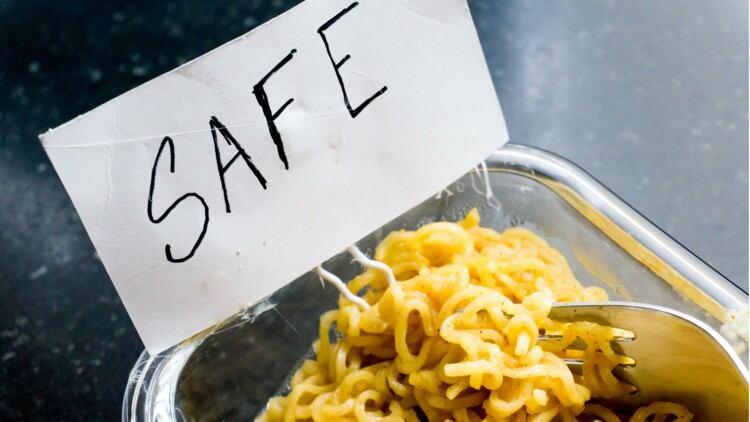1. Cool packaging: Coca-Cola Turkey launches new cans with thermochromic inks
Coca-Cola Turkey has made a twist on its product appearance this summer, featuring thermochromic-inked designs on the cans.
In line with the summer theme, the thermochromic designs, which include palm trees, ice cubes, and sandals, are only visible when the cans are chilled.
Usually, only one or two thermochromic inks are used to display a change in temperature. However, for this time round, Coca-Cola Turkey is using four separate inks.
A total of 70m Coke Red and Coke Zero cans are donned with the designs.
2. Kellogg's, Mars, Nestle pledge to reduce sugar, salt, and fat as Saudi authorities launch the Healthy Food Strategy
Major food firms, including Kellogg’s Arabia, Mars Saudi Arabia, and Nestle Middle East have signed a voluntary pledge with the Saudi Food and Drug Authority (SFDA) that seeks to reduce sugar, salt, and fat content in their products.
These firms have detailed their reformulation efforts and plans to FoodNavigator-Asia. For instance, Kellogg’s has halved the amount of sugar present in its Coco Pops.
At present, over 30% of Saudi Arabia’s population is obese and non-communicable diseases are expected to cause over 85% of deaths.
This has prompted the authorities to pay attention to the population’s diet and launch the Healthy Food Strategy in Sep this year.
Other companies which signed the pledge included Mondelez Arabia, Ferrero, Coca-Cola, PepsiCo International, Unilever, and Freeze Land, which are all members of the International Food and Beverage Alliance (IFBA).
3. Dubai officials clear Milka bars social media spreads alcohol rumours
Dubai officials have clarified that the Milka Oreo chocolate bars do not contained alcohol and could be consumed by Muslims following a probe.
The product was thought to contain alcohol as a result of mistranslation.
The English words “chocolate liquor”, which is a term for cocoa paste, were wrongly translated into “alcoholic beverages” in Arabic.
Following which, Dubai authorities inspected the manufacturing plants and clarified the misunderstanding, and ordered all stocks with the wrong labels to be cleared from the shelves to prevent confusion among consumers.
4. First-of-its-kind blockchain technology to trace halal food launched in Dubai
HalalChain, a brainchild of HLC Technologies FZCO, was commercially launched in August this year.
It aims to overcome difficulties brought by regulatory uncertainty, inaccurate and unauthentic data.
The technology uses smart IoT devices, RFID, sensor, LoRa, and smart cameras with AI for data gathering.
For a start, the company will promote the technology in primary halal markets, such as the UAE, Indonesia, and Malaysia, followed by Thailand, Australia, and others.
5. 2017's top Middle East food and beverage industry stories revealed
Our five most read Middle East stories in 2017 were mainly related to developments in the UAE and the GCC region.
The most popular story was about Al Islami emerging as the most influential halal food company.
This was followed by the introduction of 50%-100% sin tax on beverage in Saudi Arabia.
A report which detailed how and why manufacturers should keep on top of the GCC’s fast-changing tastes, workforce trends, and government zeal for healthy diets, was the third most read story.
6. New federal food registration portal launched in the UAE
All foods entering the UAE will need to register via a new federal portal launched by the Ministry of Climate Change and Environment and the Dubai Municipality.
The authorities believe that the system will cut down time needed for inter-emirate food transport, and stem illegal trade at the same time.
The system will also list the Halal certification and accreditation bodies approved by the Emirates Authority for Standardisation and Metrology (ESMA).
7. NADEC strengthens hand in dairy battle against Almarai with Danone SA acquisition
The National Agricultural Development Co. (NADEC), owned by Saudi Arabia’s sovereign wealth fund will acquire the Danone venture (known as Al Safi Danone) in the country.
The acquisition will be funded through a capital of SAR$536m (USD$143m).
The deal is set to rival Almarai, one of the biggest dairy platers in Saudi Arabia, and to open access to new markets, such as the high-growth Iraqi market via local manufacturing capabilities.
8. Coca-Cola to bring Middle East juice brand to India as consumer interest increases
Coca-Cola will sell Rani Float, its Middle East juice product, to India in view of growing consumer interest.
The move is set to challenge other global and regional players which are already selling similar items, such as PepsiCo’s Tropicana, ParleAgro’s Frooti, and Hector Beverages’ Paper Boat.
Rani Float was born out of a partnership between Coca-Cola and Aujan Industries, one of the main beverage companies in the Middle East.
With real fruit pieces, higher juice content and lesser sugar, the flavours available include orange, peach, mango, pineapple, guava, and grape.
9. UAE food firm Global Food Industries reveals Asia manufacturing plant plans
Global Food Industries (GFI) is planning to open a manufacturing plant that produces the company’s flagship brand – the “Healthy Farm” packaged food.
The UAE firm is considering China, Japan, Thailand, and Malaysia as the potential site for establishing its factory.
Outside of the Middle East, the “Healthy Farm” products are presently only available via Alibaba.com.
10. Supermarket chain increases fruit and vegetable imports from other areas following UAE ban on Kerala products
UAE based supermarket chain Lulu Group has temporarily diverted its vegetables import to other parts of India and Sri Lanka following a ban on Kerala products by the UAE authorities.
The ban was due to the outbreak of the Nipah virus in Kerala in May this year.
The Nipah virus is transmitted through secretions from the fruit bat to fruits that it feeds upon or touches.
In response, Lulu group had to increase imports from other sources, including other parts of India and Sri Lanka by 20tons per day.





